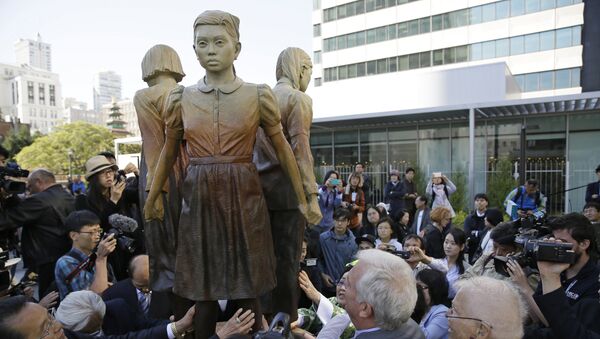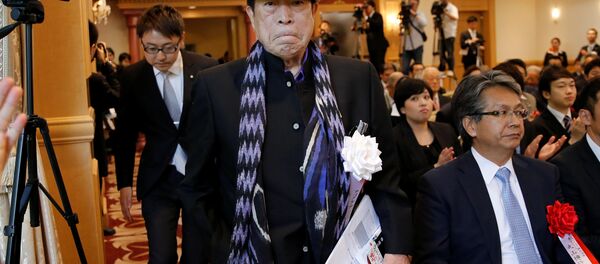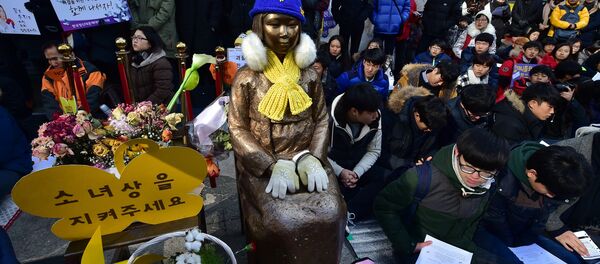MOSCOW (Sputnik) — The mayor of the western Japanese city of Osaka Hirofumi Yoshimura is planning to cut sister-city ties with San Francisco after the US city's decision to accept a statue representing the so-called comfort women, who suffered from sexual enslavement at the hands of the Japanese army during World War II, the NHK broadcasting organization reported Friday.
READ MORE: Crowds Gather in San Francisco to Celebrate Right-Wing Group Cancelling Event
According to Yoshimura, accepting the statue meant Mayor of San Francisco Edwin Lee was willing to show it to the world, adding that the relationship of trust between the two sister-cities has been ruined, media reported.
Last week, the city council of San Francisco unanimously voted to accept the donation of the statue from a private group.
Every war commits crimes, but the biggest is denial. There is no disrespect in honoring those who suffered. @Japan for the sake of @Tokyo2020 own up to history, denounce, apologize your war atrocities. #textbookeform #comfortwomen #unit731 #rapeofnanking #Changde 💛@war_women💛 pic.twitter.com/bTKCyNW7hA
— James Mar (@MrJamesMar) November 17, 2017
Separately, Tokyo has lodged an official protest against Seoul after the South Korean parliament adopted a bill which set the date for the national day of remembrance of comfort women
"We are concerned that this step might chill bilateral relations at a time when Japan and South Korea are making efforts to develop relations which look forward," Yoshihide Suga, the chief cabinet secretary of the Japanese government, said, commenting on the issued protest.
Erecting comfort women statues in the US and in other countries contradicts the stance of Japan on the issue.
READ MORE: China Urges Tokyo to Resolve Diplomatic Crisis With Seoul Over 'Comfort Women'
In December 2015, Japan and South Korea reached a deal on the issue, ending the long-standing diplomatic feud over "comfort women," with both sides having agreed to set up a foundation for sexually enslaved Korean women under the deal, which the Japanese government poured 1 billion yen ($8.8 million) into for the support of the surviving victims and their families.




